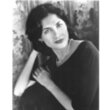The Bells: A Novel
(Libby/OverDrive eAudiobook)
Available Platforms
Description
More Details
Also in this Series
Published Reviews
Booklist Review
Born in a belfry in the Uri Valley of the Swiss Alps, where his deaf-mute mother rang the Loudest Bells on Earth, Moses Froben possesses both a remarkably sensitive ear and an exquisite singing voice, enabling him to overcome his humble origins to become Lo Suizzero, the musical toast of Europe in the eighteenth century. In papers left for the son he raised but did not sire, Froben recounts being rescued from his father's murderous plan by monks Nicolai and Remus and taken to their abbey, where the choirmaster recognizes the boy's gift and goes to inhumane lengths to preserve it. In the neighboring town, Moses meets Amalia Duft, daughter of the area's wealthiest man, whose love becomes a beacon for his life even after his castration. Despite an opening note that reveals part of the story, Harvell builds suspense as Moses struggles against the superior forces of the noble family Amalia is forced by duplicity to marry into, reaching a bittersweet conclusion. Taking few liberties with history, Harvell has fashioned an engrossing first novel ringing with sounds; a musical and literary treat.--Leber, Michele Copyright 2010 Booklist
Publisher's Weekly Review
Chronicling the journey of 18th-century singer Moses Froben from his Swiss village to Vienna, this debut novel strikes many melodramatic notes in an overwrought plot; squalor, beauty, horror, forbidden love, tragedy, and triumph splash broadly, sometimes artfully, but often with operatic excess. Moses, born to a deaf-mute in a belfry, possesses a unique bond to music. Cast from his home, he joins a choir, discovering that he can mold "that ocean of sound... into something beautiful." Harvell, however, shows his own limitations when he seeks to describe the resonance of music. When Moses says, "I wished I could dissolve into sound," the reader shares his frustration. A tormented choirmaster castrates Moses to preserve his beautiful voice, transforming him into a "musico," a soprano whose voice never deepens, and who will never be a man. His ability to sound like an angel brings him into contact with a wealthy family, sparking an impossible love affair with a beautiful but crippled woman. Moses's ardor impels him to Vienna and its vibrant opera scene, where his brief appearance on stage allows love to triumph before, unsurprisingly, tragedy brings down the curtain. (Sept.) (c) Copyright PWxyz, LLC. All rights reserved
Library Journal Review
Harvell's debut novel is saturated with sound-and not just the clash of bells-for young protagonist Moses has preternatural hearing that opens the world to him in a way that it isn't to others. The result is a striking "revisualization" of events in terms of the whoosh and clatter of humans and nature (e.g., "Lovemaking is like singing"). Born to a deaf mother confined to a bell tower in 1700s Switzerland by her cruel paramour, the village priest, Moses is literally thrown into the world and rescued by two odd monks returning to the Abbey of St. Gall. There he discovers his voice (he hasn't really spoken until then), and his voice-that is, his extraordinary gift for singing-is likewise discovered, and leads to his placement in the boys' choir. Soon he's asked to visit the wealthy Duft household, where he sings for the dying mother of Amalia, whom he comes to love. Alas, the creepy choirmaster wants to preserve that beautiful voice forever and has Moses secretly castrated. What follows is wrenching and painfully triumphant as Moses comes to understand what has happened to him and seeks out Amalia-Eurydice to his Orpheus, as played out in Gluck's opera, a touchstone here. Verdict A poignant and acutely told story of the human spirit; highly recommended. [See Prepub Alert, LJ 5/15/10; featured at the Librarians' Shout and Share at BEA.]-Barbara Hoffert, Library Journal (c) Copyright 2010. Library Journals LLC, a wholly owned subsidiary of Media Source, Inc. No redistribution permitted.
Kirkus Book Review
A young man endures hardship, abuse and mutilation on the path to musical glory in 18th- century Vienna.When we first meet Moses, the hero and narrator of Harvell's debut, he's growing up in degraded circumstances in the Swiss Alps. His mother is a deaf-mute who is taken advantage of by a local priest, banishing both mother and child to the church belfry in the name of secrecy. She takes her revenge by aggressively pounding the church's massive bells loudly enough to blast the eardrums of all who approachexcept Moses, who has a preternatural musical talent. Cast out by the priest, Moses is soon discovered by two monks, Nicolai and Remus, who exchange Abbott and Costellostyle banter as they take the boy under their wing. Moses' singing ability keeps him from being sent to an orphanage, but the abbey is full of its own humiliations: He's ostracized by his fellow choirboys, the sons of wealthy men who are financing a massive church construction; Nicolai and Remus are expelled under accusations of homosexuality; and as Moses nears puberty he's castrated in the hopes of making him a musico. The sole bright spot in his life is Amalia, a young woman seduced by his singing and eager to escape the clutches of her controlling aunt. Harvell's storytelling is fast-paced and deliberately melodramatic, as the plot threads converge on Vienna, where the debut of Gluck's Orfeo serves as the novel's climax. Like Orfeo, the plot of this novel is built on the Orpheus and Eurydice myth, though Harvell gives his story a few contemporary twists. Nicolai and Remus provide an opportunity to comment on the struggles of homosexuals at the time, both inside and outside the church; Amalia reveals a proto-feminist eagerness to stop living under the thumb of parents or a husband; and in rounding out this motley crew, Moses himself undercuts the era's conservative notions of faith and masculinity. Harvell doesn't press those points, but they do add gravitas to his likable historical page-turner.An entertaining coming-of-age tale that earns its operatic tone.]] Copyright Kirkus Reviews, used with permission.
Booklist Reviews
"Born in a belfry in the Uri Valley of the Swiss Alps, where his deaf-mute mother rang the Loudest Bells on Earth, Moses Froben possesses both a remarkably sensitive ear and an exquisite singing voice, enabling him to overcome his humble origins to become Lo Suizzero, the musical toast of Europe in the eighteenth century. In papers left for the son he raised but did not sire, Froben recounts being rescued from his father's murderous plan by monks Nicolai and Remus and taken to their abbey, where the choirmaster recognizes the boy's gift and goes to inhumane lengths to preserve it. In the neighboring town, Moses meets Amalia Duft, daughter of the area's wealthiest man, whose love becomes a beacon for his life even after his castration. Despite an opening note that reveals part of the story, Harvell builds suspense as Moses struggles against the superior forces of the noble family Amalia is forced by duplicity to marry into, reaching a bittersweet conclusion. Taking few liberties with history, Harvell has fashioned an engrossing first novel ringing with sounds; a musical and literary treat." Copyright 2010 Booklist Reviews.
Library Journal Reviews
The bastard son of a deaf-mute woman finds a home in the choir of the Abbey of St. Gall, where the beauty of his voice leads to his castration. Told in a letter to his son-now how did that happen?-the story of his life could have been tragic but instead appears to be charming, funny, and sensuous. The publisher grabbed the world rights, and ten countries have since anted up. Watch. Copyright 2010 Reed Business Information.
Library Journal Reviews
Harvell's debut novel is saturated with sound-and not just the clash of bells-for young protagonist Moses has preternatural hearing that opens the world to him in a way that it isn't to others. The result is a striking "revisualization" of events in terms of the whoosh and clatter of humans and nature (e.g., "Lovemaking is like singing"). Born to a deaf mother confined to a bell tower in 1700s Switzerland by her cruel paramour, the village priest, Moses is literally thrown into the world and rescued by two odd monks returning to the Abbey of St. Gall. There he discovers his voice (he hasn't really spoken until then), and his voice-that is, his extraordinary gift for singing-is likewise discovered, and leads to his placement in the boys' choir. Soon he's asked to visit the wealthy Duft household, where he sings for the dying mother of Amalia, whom he comes to love. Alas, the creepy choirmaster wants to preserve that beautiful voice forever and has Moses secretly castrated. What follows is wrenching and painfully triumphant as Moses comes to understand what has happened to him and seeks out Amalia-Eurydice to his Orpheus, as played out in Gluck's opera, a touchstone here. Verdict A poignant and acutely told story of the human spirit; highly recommended. [See Prepub Alert, LJ 5/15/10; featured at the Librarians' Shout and Share at BEA.]-Barbara Hoffert, Library Journal Copyright 2010 Reed Business Information.
Publishers Weekly Reviews
Chronicling the journey of 18th-century singer Moses Froben from his Swiss village to Vienna, this debut novel strikes many melodramatic notes in an overwrought plot; squalor, beauty, horror, forbidden love, tragedy, and triumph splash broadly, sometimes artfully, but often with operatic excess. Moses, born to a deaf-mute in a belfry, possesses a unique bond to music. Cast from his home, he joins a choir, discovering that he can mold "that ocean of sound... into something beautiful." Harvell, however, shows his own limitations when he seeks to describe the resonance of music. When Moses says, "I wished I could dissolve into sound," the reader shares his frustration. A tormented choirmaster castrates Moses to preserve his beautiful voice, transforming him into a "musico," a soprano whose voice never deepens, and who will never be a man. His ability to sound like an angel brings him into contact with a wealthy family, sparking an impossible love affair with a beautiful but crippled woman. Moses's ardor impels him to Vienna and its vibrant opera scene, where his brief appearance on stage allows love to triumph before, unsurprisingly, tragedy brings down the curtain. (Sept.)
[Page ]. Copyright 2010 Reed Business Information.Reviews from GoodReads
Citations
Harvell, R., & Powers, R. (2010). The Bells: A Novel (Unabridged). Blackstone Publishing.
Chicago / Turabian - Author Date Citation, 17th Edition (style guide)Harvell, Richard and Richard Powers. 2010. The Bells: A Novel. Blackstone Publishing.
Chicago / Turabian - Humanities (Notes and Bibliography) Citation, 17th Edition (style guide)Harvell, Richard and Richard Powers. The Bells: A Novel Blackstone Publishing, 2010.
Harvard Citation (style guide)Harvell, R. and Powers, R. (2010). The bells: a novel. Unabridged Blackstone Publishing.
MLA Citation, 9th Edition (style guide)Harvell, Richard, and Richard Powers. The Bells: A Novel Unabridged, Blackstone Publishing, 2010.
Copy Details
| Collection | Owned | Available | Number of Holds |
|---|---|---|---|
| Libby | 1 | 1 | 0 |
































